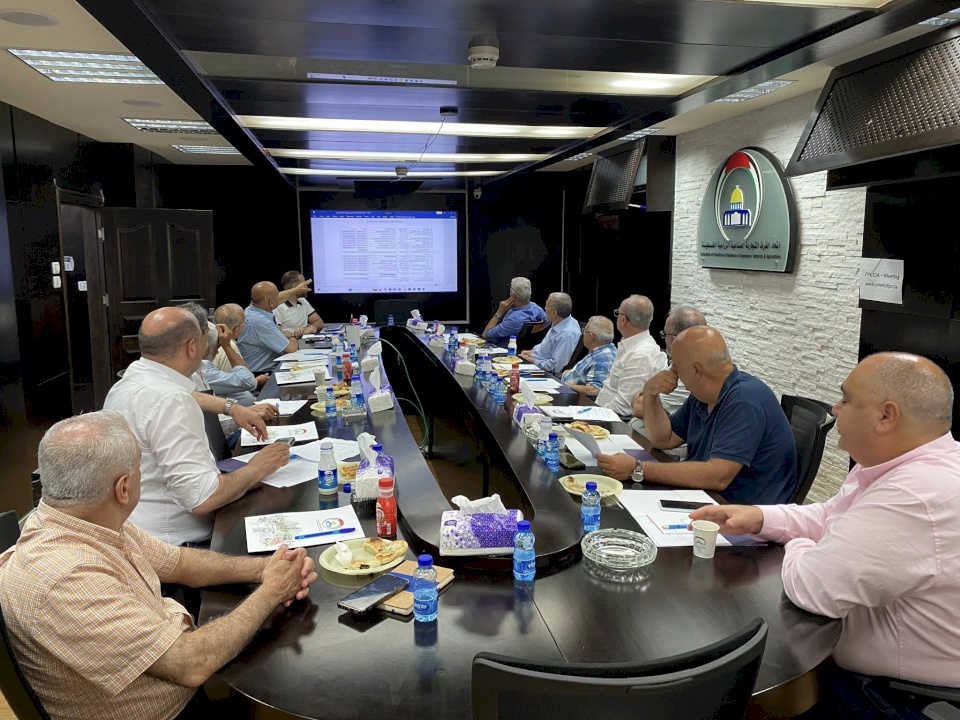
The Coordination Framework for the Agricultural Sector Discusses Challenges and Plans for the Protection and Development of Agriculture in Palestine
SadaNews - The Coordination Framework for the Agricultural Sector in Palestine held a meeting today for its general assembly at its headquarters in the Union of Agricultural Chambers in Ramallah, attended by representatives from 15 organizations representing the private and civil agricultural sector. The framework aims to coordinate between private sector institutions and the Palestinian civil agricultural society to highlight, develop, and activate their role in the process of economic and social development and to unify the positions of these institutions regarding issues related to or affecting the activities of the Palestinian agricultural sector.
Mr. Jamal Jawabra, the Secretary-General of the Union of Agricultural Chambers, welcomed the attendees and affirmed the Union's commitment to host the coordination framework and provide all administrative and logistical requirements to ensure its success. The general coordinator of the framework, Mr. Abbas Malhim, then presented the latest updates and activities carried out, addressing the difficulties and challenges faced by various agricultural activity branches currently and anticipated, especially in light of the escalating settlement attacks, land confiscation, and seizure of water sources in the West Bank governorates. He also indicated that the extent of the destruction inflicted on the agricultural sector in the Gaza Strip is significant, to the extent that less than 5% of agricultural land remains suitable for agricultural activities, in addition to the considerable losses and destruction resulting from the massacre war.
The attendees, members of the framework's general assembly, discussed various issues and challenges facing their agricultural sectors, particularly in the areas of vegetable crops, olive cultivation, poultry farming, honey production, and more.
Finally, the meeting concluded with a request for the framework's coordinator to prepare a conceptual paper that includes the strategic dimensions of the coordination framework and how to work with various stakeholders related to the agricultural sector to preserve, protect, and develop it. Additionally, a set of ideas was proposed regarding the status of the agricultural sector in the Gaza Strip areas and how to rebuild and uplift it.

The Problem of Shekel Overcrowding Worsens.. Fuel Station Owners Threatened with Closure o...

The Palestinian Economy at a Crossroads: 4 Files Awaiting Resolution

Mas Institute Publishes New Study on "Political Economy and Challenges of Palestinian Deve...

A Strong Blow to Smotrich: The Knesset Abolished Doubling the VAT Exemption for Online Pur...

Exchange Rates of Currencies Against the Shekel on Tuesday (February 24)

Oman: Ministerial Decision to Establish the "Palestinian Endowment Foundation" with a Capi...

Newspaper: 'Peace Council' Prepares Plan to Launch 'Digital Currency' for Gaza Aimed at Dr...
